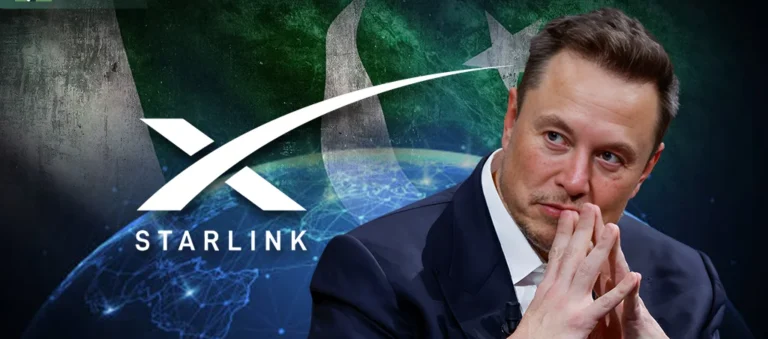ISLAMABAD, March 21: Starlink has received a temporary No Objection Certificate (NOC) to operate in Pakistan, marking a significant milestone for the country’s internet services and technology infrastructure.
This decision, announced by the Ministry of Information Technology, came after consultations with various security and regulatory bodies.
The initiative is in line with the directives of Prime Minister Shehbaz Sharif, who had emphasized the importance of improving the country’s internet systems.
Starlink, a satellite-based internet provider owned by tech mogul Elon Musk, utilizes Low Earth Orbit (LEO) satellites to deliver internet services globally.
The company had applied for permission to operate in Pakistan, and Elon Musk had confirmed in January that they were awaiting government approval.
Confirmation on Social Media: Musk Starlink Receives Provisional Permission
A recent confirmation on social media (X, owned by Musk) also indicated that the government had granted approval for Starlink to launch in the country.
According to the statement from the Ministry of Information Technology, Minister Shaza Fatima explained that the approval for Starlink’s temporary registration was issued after thorough discussions and agreement among all relevant security and regulatory agencies.
Read More: Starlink Secures Key NoC to Launch Internet Services in Pakistan
Fatima described this move as a major step towards enhancing internet connectivity in Pakistan, aligning with the government’s vision for digital progress. She noted that Starlink’s entry would mark the formal commencement of satellite internet services in the country.
The Minister emphasized that this move was part of the government’s broader efforts to improve the IT infrastructure and digital development of Pakistan, especially under the leadership of Prime Minister Shehbaz Sharif.
Fatima pointed out that satellite-based internet services like Starlink are key to addressing the digital divide and improving internet access across various parts of the country, particularly in remote and underserved regions.
Also Read: Elon Musk’s Starlink Faces Competition from China’s 15,000-Satellite Plan
This initiative was described as a “whole of government” approach, with the Ministry of IT consulting multiple agencies, including the Pakistan Telecommunication Authority (PTA), the Cybercrime Agency, security agencies, and the Pakistan Space Activities Regulatory Board.
The PTA will handle the final steps for Starlink, including the payment of fees and fulfillment of other licensing requirements.
The approval of Starlink’s temporary NOC is expected to contribute significantly to improving Pakistan’s internet connectivity and laying the groundwork for a more digitally connected future.
This move is part of Pakistan’s broader efforts to embrace modern technological solutions to enhance the country’s digital and IT landscape.



